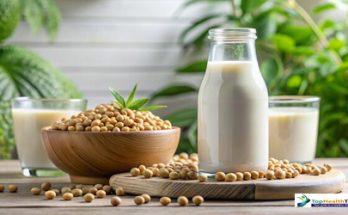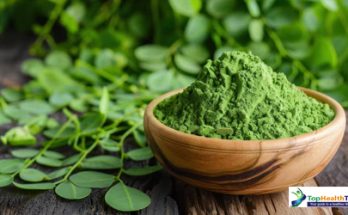Eating sour curd offers numerous health benefits. This article explains why incorporating sour curd into your diet can be a great choice.
What is Sour Curd?
Sour curd, also known as sour yogurt or sour buttermilk, is a fermented dairy product created by fermenting milk with beneficial bacteria. This fermentation process imparts a tangy flavor and a thicker texture compared to regular yogurt. Specifically, the tanginess arises from the lactic acid produced by the bacteria during fermentation.
Widely used in various cuisines, sour curd is particularly prominent in Indian cooking, where it enhances curries and serves as a refreshing side dish. Moreover, its versatility extends to baking, where it can substitute for buttermilk, and it also functions as a base for marinades and dressings. Consequently, its unique flavor and probiotic benefits make sour curd a valuable ingredient for adding both taste and nutritional value to a variety of meals.
Composition of Sour Curd
Per 100 grams:
- Water: 85-88 grams
- Proteins: 3-4 grams (primarily casein and whey proteins)
- Fats: 3-4 grams (varies depending on whether whole milk or low-fat milk was used)
- Carbohydrates: 4-5 grams (mostly lactose, with some conversion to lactic acid during fermentation)
- Minerals: Approximately 0.7-1 gram, including calcium (about 150-200 mg), phosphorus, potassium, and magnesium.
- Vitamins: Includes B vitamins (such as riboflavin, B12) and fat-soluble vitamins if made from whole milk.
- pH Level: Typically around 4.5 to 5.5
These values can vary slightly based on the milk source, fermentation process, and any added ingredients.

Health Benefits of Sour Curd
1. Improves Digestion
- Probiotics: Sour curd contains live bacteria, known as probiotics, that promote a healthy digestive system.
- Gut Health: These probiotics help balance the gut flora, improving overall digestion and reducing bloating.
2. Boosts Immunity
- Nutrient-Rich: It is a good source of essential nutrients, including protein, calcium, vitamin B12, riboflavin, and phosphorus. These nutrients are vital for bone health, muscle function, and overall metabolic processes.
- Immune Support: The probiotics in sour curd can enhance your immune response and help your body fight off infections.
3. Enhances Bone Health
- Calcium Source: Sour curd is rich in calcium, which is crucial for strong bones and teeth.
- Bone Density: Regular consumption can help maintain bone density and prevent osteoporosis.
4. Supports Weight Management
- Low in Calories: Sour curd is relatively low in calories and fat, making it a great option for weight management.
- Satiety: Its high protein content can help you feel full longer, reducing overall calorie intake.
When Should Eat Sour Curd?
Morning: Provides probiotics and protein; great with breakfast.
Lunch: Aids digestion and cools spicy foods.
Dinner: Helps with digestion and may promote better sleep; avoid too close to bedtime if you have digestive issues.
Post-Workout: Supports muscle recovery with its protein content.

How to Incorporate Sour Curd into Your Diet?
1. As a Snack
- Enjoy a bowl of sour curd with some fresh fruits or a drizzle of honey for a quick and nutritious snack.
2. In Smoothies
- Blend sour curd with fruits and vegetables to create a delicious and healthy smoothie.
3. As a Salad Dressing
- Use sour curd as a base for a creamy, tangy salad dressing. Mix with herbs and spices for added flavor.
4. In Cooking
- Incorporate sour curd into your cooking to add a rich flavor to dishes like curries and marinades.
Tips for Choosing the Best Sour Curd
- Look for Freshness: Choose sour curd that is freshly made or properly stored to ensure it has the best flavor and health benefits.
- Check Ingredients: Opt for sour curd with minimal additives or preservatives to maximize its nutritional value.
Have Any Harmful Effect?
- Lactose Intolerance: May cause digestive issues like bloating or gas.
- High Sodium: Store-bought versions might contain added salt, which can be problematic for those with high blood pressure.
- Acidity: Can aggravate acid reflux or ulcers; moderation is advised.
- Milk Allergies: Contains proteins that can trigger allergic reactions.
- Storage: Improper handling can lead to contamination; keep refrigerated and consume before expiration.
Overall, sour curd offers probiotic benefits but be mindful of these potential issues
Conclusion
Adding sour curd to your diet can enhance your digestion, boost your immunity, support bone health, and help with weight management. It’s a versatile ingredient that can be enjoyed in various ways.
Incorporate sour curd into your meals today and enjoy its many health benefits!




